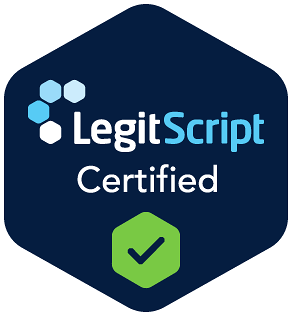Veterans face unique challenges that often lead to higher rates of substance abuse and mental health disorders compared to the general population. At Surf City Detox in Huntington Beach, California, we provide specialized rehab for veterans that addresses the root causes of addiction, including PTSD, trauma, and the difficulties of transitioning to civilian life. Our evidence-based programs combine medical detox, individualized therapy, and holistic care in a supportive, veteran-focused environment. With a team experienced in military-related trauma, we help veterans reclaim their lives through compassionate, structured treatment tailored to their needs.

Learn about substance use among veterans, including commonly misused drugs, and their connection to mental health, and explore rehab for veterans at Surf City Detox.
Additionally, co-occurring disorders like Post-traumatic stress disorder (PTSD) and depression significantly increase the risk of addiction, creating a cycle of self-medication and worsening symptoms.

What causes addiction in veterans?
- Combat Trauma and PTSD: Exposure to life-threatening situations can lead to PTSD, which is linked to higher rates of alcohol and drug misuse as veterans attempt to numb emotional pain.
- Chronic Pain and Prescription Opioids: Many veterans rely on painkillers for service-related injuries, increasing the risk of opioid dependence.
- Military Culture and Stigma: The “tough it out” mentality discourages seeking help, leading to delayed treatment and worsening addiction.
- Isolation and Reintegration Stress: Difficulty adjusting to civilian life can trigger depression and substance use as a coping mechanism.
Common Substances Abused Among Veterans
- Alcohol: American Addiction Centers lists alcohol as the primary substance for 65% of veterans in treatment. Binge drinking is prevalent in military culture and often persists after service, leading to liver disease, violence, and suicide risk.
- Prescription Opioids: Veterans who were injured during duty may be at risk of developing a dependence on prescription medicines for chronic pain.
- Heroin: Veterans may transition to heroin as a cheaper alternative to opioids for pain management.
- Benzodiazepines (e.g., Xanax, Valium): Used to manage anxiety or PTSD, these drugs can cause dependency and worsen mental health symptoms.
- Marijuana: While sometimes used for PTSD, long-term reliance can impair motivation and mental health
Veterans and Mental Health
Veterans experience a range of mental health conditions at higher rates than the civilian population, often stemming from combat exposure, military sexual trauma, or the stress of reintegration. PTSD is one of the most prevalent, with symptoms like flashbacks, nightmares, and hypervigilance making daily life difficult. Many veterans also struggle with depression and anxiety, which can be exacerbated by chronic pain, isolation, or the loss of military camaraderie.
Additionally, traumatic brain injuries (TBIs) from combat or training accidents can impair cognitive function and emotional regulation, increasing vulnerability to addiction. Left untreated, these conditions often lead veterans to self-medicate with alcohol, prescription drugs, or illicit substances as a way to numb emotional pain or cope with insomnia. Recognizing these challenges and seeking individual therapy is the first step toward effective treatment and recovery.
Treating veterans with both substance use disorders and mental health conditions requires a comprehensive, trauma-informed approach that goes beyond standard rehab methods. These therapies typically work well for veterans:
- CBT: Evidence-based therapies like cognitive behavioral therapy (CBT) help veterans identify and reframe negative thought patterns that contribute to addiction and emotional distress.
- MAT: Medication-assisted treatment (MAT) may also be used under medical supervision to manage withdrawal symptoms and cravings while stabilizing mood disorders.
- EMDR: For those with PTSD, prolonged exposure therapy and EMDR (Eye Movement Desensitization and Reprocessing) can reduce trauma triggers and lessen the urge to self-medicate.
- Additional Therapy: Group therapy with fellow veterans provides peer support and reduces feelings of isolation, while holistic therapies like mindfulness, yoga, and equine therapy promote emotional healing.
By addressing both addiction and mental health together, veterans can break the cycle of self-destructive behaviors and build healthier coping mechanisms.
Dual diagnosis is extremely common among veterans. Without treating both issues simultaneously, recovery is far more difficult, as untreated PTSD, depression, or anxiety often lead to relapse. At Surf City Detox in Huntington Beach, CA, our dual diagnosis treatment program ensures that veterans receive personalized care targeting their unique psychological and addiction-related needs.
This approach includes psychiatric evaluations, individualized therapy plans, and continuous monitoring to adjust treatment as needed. Veterans learn how their mental health symptoms may have contributed to substance use and develop strategies to manage both without relying on drugs or alcohol. By integrating mental health care with addiction treatment, we help veterans achieve long-term stability and reduce the risk of returning to harmful coping mechanisms. Healing requires more than just sobriety; it demands addressing the root causes of addiction, which for many veterans lie in unresolved trauma and emotional pain.
The Impact of Trauma and PTSD in Veterans
These symptoms frequently lead to self-medication through alcohol or drugs as veterans attempt to quiet their psychological distress. The cyclical nature of trauma and substance abuse creates a compounding effect, where PTSD symptoms drive substance use, and substance use in turn worsens PTSD symptoms.
Barriers to Seeking Help: Why Veterans May Avoid Treatment
Practical concerns also play a role; some veterans struggle with navigating complex VA systems or worry about losing benefits if they disclose substance abuse issues. Others may distrust civilian treatment providers who don’t understand military experiences. There’s also the very real fear that discussing trauma could mean reliving it in therapy.
At Surf City Detox, we’ve designed our veteran’s program specifically to overcome these barriers by creating a military-friendly environment staffed by professionals who speak the language of service and understand the unique pressures veterans face.

Our Rehab for Veterans
Veterans participate in evidence-based individual and group therapies while also having access to holistic modalities like adventure therapy and mindfulness training. Perhaps most importantly, we help veterans rediscover their identity beyond their service and addiction, rebuilding self-worth and purpose in recovery.
We also help break down barriers by offering gender-specific care. Separate tracks for men and women to address military sexual trauma and other unique needs.
Achieve Long-Term Wellness at Surf City Detox
Our treatment plans address the whole person – physical health, mental wellbeing, social connection, and spiritual fulfillment. Veterans learn to navigate the challenges of civilian life while maintaining their hard-earned recovery, with access to ongoing support through alumni programs and veteran-specific recovery communities. We emphasize the development of new routines, hobbies, and social networks that support sobriety. By treating the underlying causes of addiction and providing tools for long-term success, we help veterans transition from merely surviving to truly thriving in their post-service lives.
Recovery is possible with the right support. Our Huntington Beach facility provides medically supervised detox, trauma-informed therapy, and aftercare planning to ensure veterans transition smoothly back to civilian life. If you or a loved one is struggling, reach out today.
Surf City Detox Accepts Insurance
We accept many insurance plans to help cover the cost of addiction treatment. Contact your provider to get more information or call our office to reach an intake specialist.


















